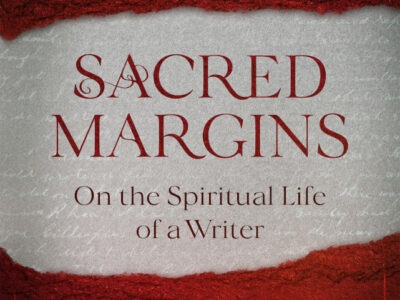The Steve Laube Agency is committed to providing top quality guidance to authors and speakers. Our years of experience and success brings a unique service to our clients. We focus primarily in the Christian marketplace and have put together an outstanding gallery of authors and speakers whose books continue to make an impact throughout the world.
Our Service Philosophy

Content
To help the author develop and create the best book possible. Material that has both commercial appeal and long-term value.

Career
To help the author determine the next best step in their writing career. Giving counsel regarding the subtleties of the marketplace as well as the realities of the publishing community.

Contract
To help the author secure the best possible contract. One that partners with the best strategic publisher and one that is mutually beneficial for all parties involved.
Recent Posts
Where to Begin?
All novelists must decide where to begin. This decision may not be as easy as we think.
Fresh readers won’t become fans if they never get past the opening. Even the first sentence must be compelling. Readers have a split-second attention span. Writers must hook them immediately.
You may say, “But my novel is a slow burn story.” That’s fine. However, the writer’s challenge is even greater then. The burn has to be worth the journey. Make me so interested in the characters that I must get to know them and care enough to want to discover why they are in their current intriguing situation. Part of doing so is to make sure their actions are intriguing and their conversations, riveting, whether you’re going for a slow burn or fast story.
The Most Typical Scenario
As for the opening, for the sake of example I’ll refer to the most typical scenario I see. I am fully aware this opens me up in the comments that, “My favorite book begins like this!”
What if the opening is during a journey? This may seem to make sense since during a trip, the protagonist can think about the past and why she’s on the journey. Unfortunately, this technique tends to get bogged down with interior contemplation that’s difficult to present in a compelling way.
The only exception I can make is if a huge development takes place during the trip. Then we have to be on the journey. But make sure we must be there.
If your favorite book begins during a journey, read the opening chapter again. Why was that the right place for that author to start? What happened that caused you to keep reading?
Skip breakfast. No, really. Skip breakfast.
I don’t recommend starting at this literal beginning of the day unless an alien cooked your character purple pancakes.
I’ve seen instances where dinner was mentioned as a transition. We have no idea what the character ate for dinner. When I was writing novels, I offered characters’ menus myself. I would not do so now. While dinner can indicate much about a character, such as wealth, indulgence (or lack thereof because of health, sickness, or poverty), usually you can skip it.
Even a scene set at a dinner party doesn’t need to include a full menu for the reader. If food is mentioned, paint a word picture, such as, “Margaret was so appalled by George’s revelation that she dropped her silver soup spoon in her lobster bisque, splashing her white silk evening dress.”
Waiting isn’t fun in real life, or in a book.
In real life, everyone has to wait. But readers don’t necessarily want to wait with characters. Note that if characters are waiting, something must happen during the wait to move the story. Characters shouldn’t twiddle their thumbs.
Overcome the Urge to Begin Too Soon
As an author, you may want to get to know your characters by going with them somewhere mundane. They can think about what to eat, what to drink, what to watch on TV. That’s fine. Go ahead and write the scene. Write as many pages as you like.
THEN write the inciting incident. Why is she there? Put her right where she needs to be, even if it’s the next day. Even if it’s the next week.
Your story starts there.
Leave a Comment
Monday Moments – March 2, 2026
Today’s moment is the first of many, loosely based on my new book, Sacred Margins: On the Spiritual Life of a Writer. Let me know your thoughts in the comments. The transcript of the video is below. If you cannot see the video, click through to our website or to YouTube, where you can view it. The book itself will be released on May 19th of this year in paperback, ebook, and audio formats. You can find the book here: https://amzn.to/3P5jVj8. Transcript: Today’s episode is called “Why the Margins Are Sacred.” Most people think the power of writing is in …
Fun Fridays – February 27, 2026
Hilarious comedy sketch! Imagine trying to rehearse this without busting out laughing. (If you cannot view this video in your email newsletter, please click through to view it on our website.) ShareTweet
Christians and Censorship
As proof of how different life is for a disciple of Jesus Christ and someone who is a follower of the world, consider the issue of censorship. At the risk of fueling a political debate with all the accompanying fun and frivolity, while various governmental documents or policies might allow free speech, freedom of the press, and other forms of expression, Christ-followers adhere to a higher standard. Of course, those areas of the world that allow greater freedom give the Church some protection in communicating its message of hope. And that’s a good thing we should be thankful for. But …
The Inciting Incident Series (Part One)
Every unforgettable story begins with one catalytic moment—an interruption so sharp and unexpected that the protagonist cannot continue life as usual. This moment is known as the inciting incident, the event that not only disrupts the ordinary world but launches the main story arc. In other words, without the inciting incident, the story doesn’t exist. So, keeping that in mind, let’s take a deep dive into what this moment truly is, why it matters, and how it works. Definition Short Definition: “The event that disrupts the protagonist’s ordinary world and sets the main story in motion.” Longer Definition: The inciting incident is …


